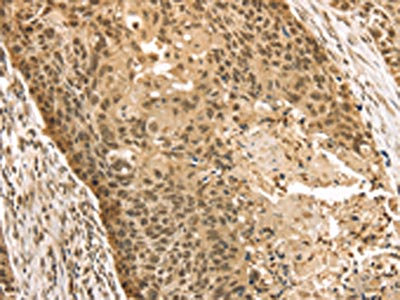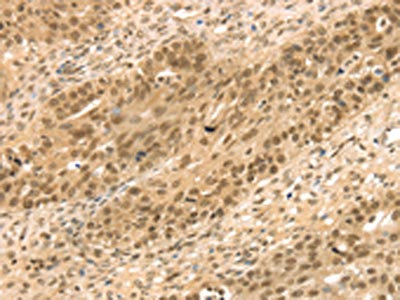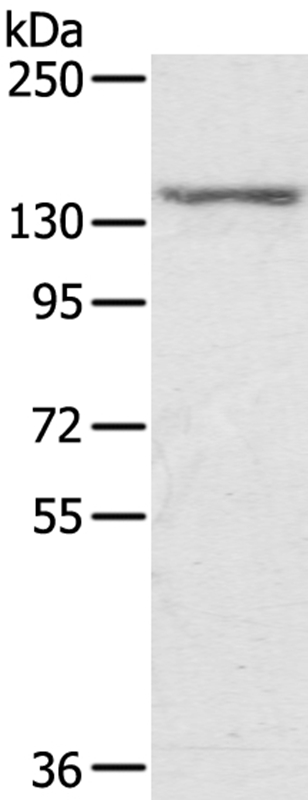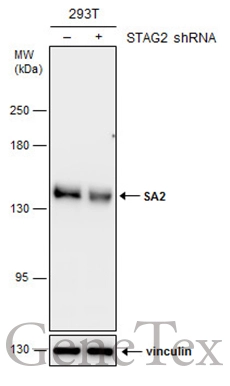
The image on the left is immunohistochemistry of paraffin-embedded Human esophagus cancer tissue using CSB-PA160836(STAG2 Antibody) at dilution 1/35, on the right is treated with fusion protein. (Original magnification: x200)
STAG2 Antibody
CSB-PA160836
ApplicationsWestern Blot, ELISA, ImmunoHistoChemistry
Product group Antibodies
ReactivityHuman, Mouse
TargetSTAG2
Overview
- SupplierCusabio
- Product NameSTAG2 Antibody
- Delivery Days Customer20
- ApplicationsWestern Blot, ELISA, ImmunoHistoChemistry
- CertificationResearch Use Only
- ClonalityPolyclonal
- ConjugateUnconjugated
- Gene ID10735
- Target nameSTAG2
- Target descriptionSTAG2 cohesin complex component
- Target synonymsHPE13, MKMS, NEDXCF, SA-2, SA2, SCC3B, bA517O1.1, cohesin subunit SA-2, SA2 stromalin, SCC3 homolog 2, sister chromatid cohesion 3 homolog B, stromal antigen 2
- HostRabbit
- IsotypeIgG
- Protein IDQ8N3U4
- Protein NameCohesin subunit SA-2
- Scientific DescriptionThe protein encoded by this gene is a subunit of the cohesin complex, which regulates the separation of sister chromatids during cell division. Targeted inactivation of this gene results in chromatid cohesion defects and aneuploidy, suggesting that genetic disruption of cohesin is a cause of aneuploidy in human cancer. Alternatively spliced transcript variants encoding different isoforms have been found for this gene.
- ReactivityHuman, Mouse
- Storage Instruction-20°C or -80°C
- UNSPSC41116161









